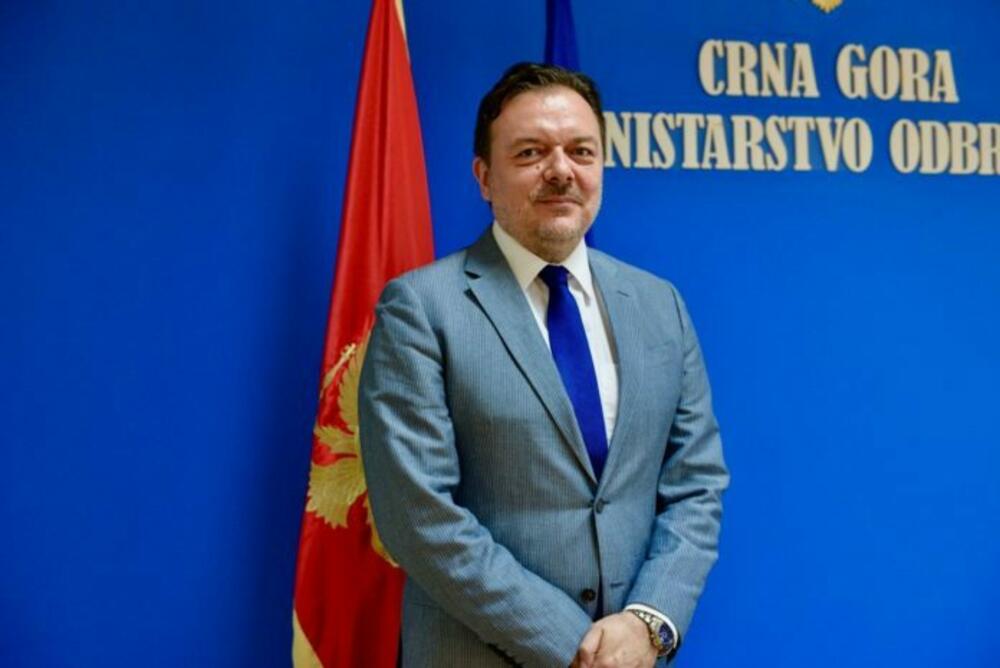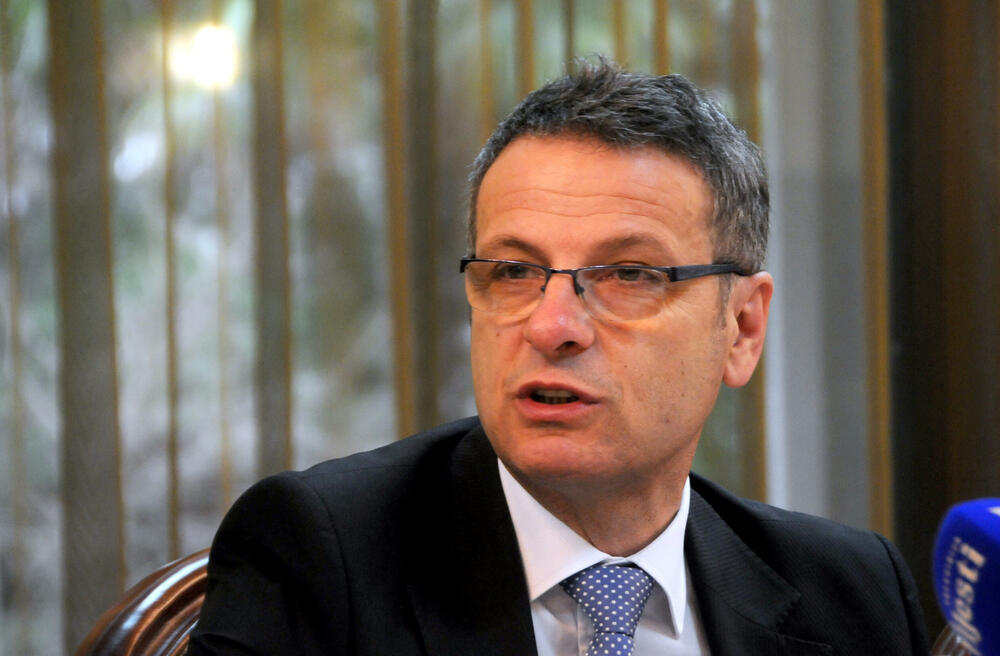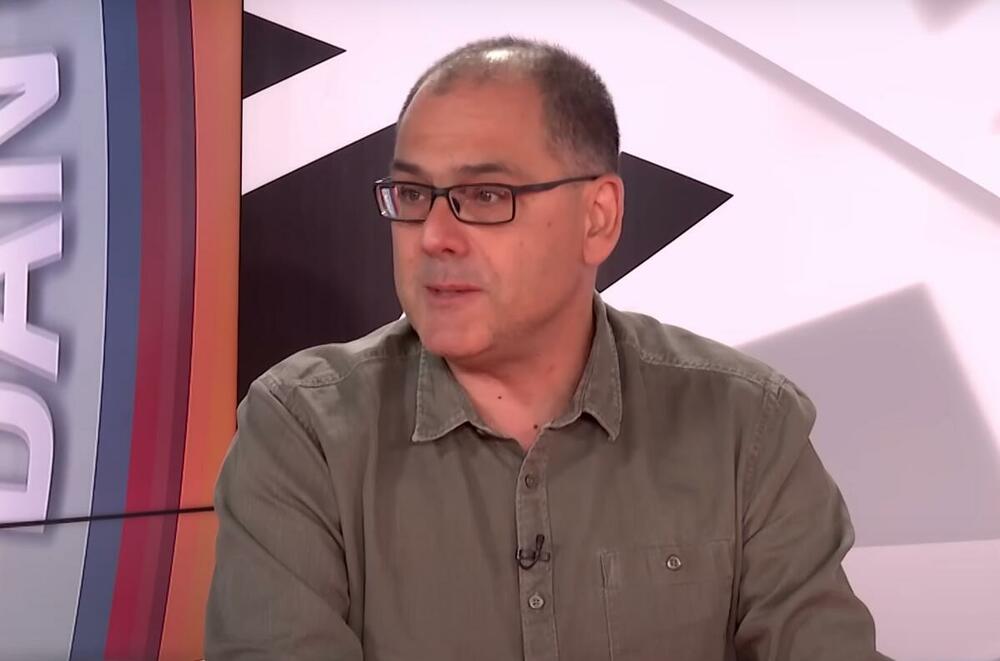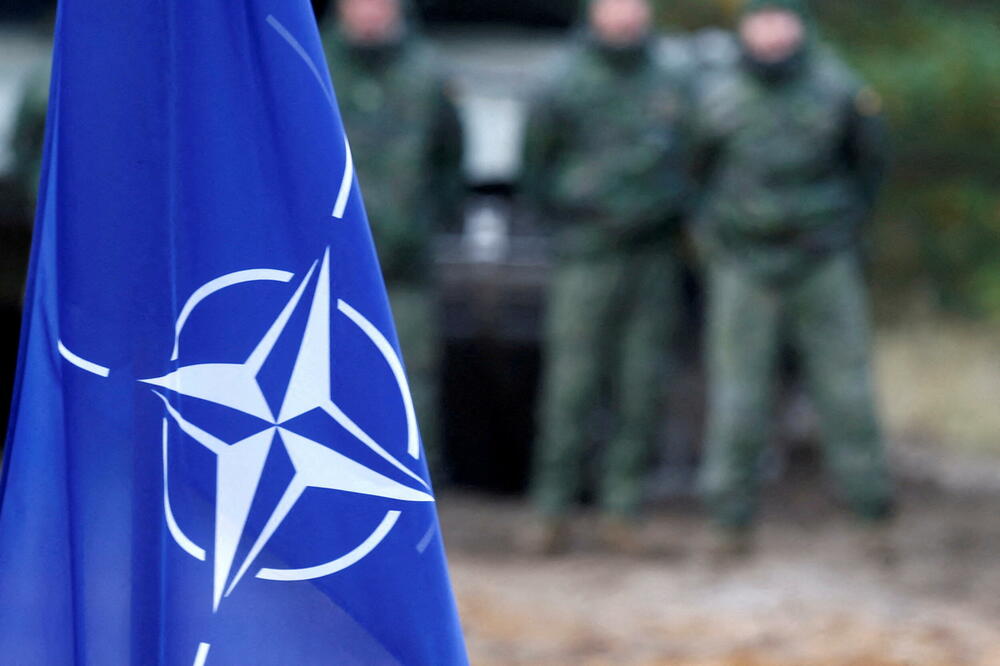Montenegro celebrates the sixth anniversary of its membership in NATO welcomes a drop in the support of citizens, which was caused by political circumstances, geopolitical upheavals and the fact that the story of the Alliance was neglected after joining.
This was assessed by the interlocutors of "Vijesti", commenting on the reasons for the decline in the support of the citizens of Montenegro for membership in NATO, which was recently stated in the NATO report for 2022.
The survey on citizens' perception, which was published at the end of March as part of the annual NATO report, showed that almost half of Montenegrin citizens, 48 percent of them, would vote in a referendum for the country to remain in the NATO alliance. The survey, which was conducted in all 30 NATO members, as well as in Sweden and Finland, showed that 32 percent of Montenegrin citizens would vote in a referendum for the country to leave NATO, while 21 percent do not know how they would vote.
The figures show that compared to last year, the number of those who support remaining in the Alliance has decreased, from 50 to 48, and the number of those who are in favor of leaving the Alliance has increased - from 24 to 32 percent.
The interlocutors estimate that there was also a drop in support in other countries after the accession and that this is not something that should disturb the representatives of the authorities.
On June 5, 2017, Montenegro officially became a full member of the Alliance, at a ceremony held at the State Department. Two days later, on June 7, the Montenegrin flag was raised in front of the NATO headquarters in Brussels.
Trends in support growth and decline occur in all members
Newly appointed national coordinator for NATO Krsto Perovic he assessed for "Vijesti" that if you look more carefully and without political spin on the statistics regarding the movement of support for the membership, you notice that it is not a matter of significant oscillations.
"Looking at the comparative analyses, it is clear that the trends of growth and decline in support are also happening in all member states. This is influenced by numerous complex factors - from election campaigns to major geopolitical upheavals, such as the war against Ukraine. I believe that support for NATO will grow in our country with the stabilization of political conditions," Perović pointed out.
He assessed that the heated polemics on this issue have already subsided among the political parties, and that now new topics related to the economy, the fight against crime and environmental agendas have become much more dominant.

Professor of International Relations at Boston University and former National Coordinator for NATO, Vesko Garcevic, he said that there are several reasons for this trend, but he would single out two:
"There is no designed public campaign that would present the role of NATO to the citizens in the new circumstances and explain the place and role of Montenegro in the Alliance. That was almost completely stopped when we became a member. The fact that there is no NATO campaign does not mean that there is no reverse campaign and it is much more successful. I think that the new government, if it cares about the Euro-Atlantic future of Montenegro, which includes membership in the EU, should approach this in a different way", Garčević assessed.
As another important reason, Garčević cites the often contradictory statements of officials of the ruling majority, especially after the invasion of Ukraine, which were accompanied by slowness in decisions to support NATO forces for a quick response and the like.
"This relativized our membership and left the public with the impression that we are an uninterested member, that is, that membership is something that must be accepted, but not necessarily loved. To simplify - we would like to be with Russia, but it is better to be in the West. This division of the Montenegrin being is omnipresent and until we finally decide to follow our real interests and not myths, we will live in that in-between space", said Garčević.
Military analyst from Serbia Aleksandar Radić said that it will probably continue like this and that it was like that in all countries.
"At the time when Montenegro was approaching membership, that topic was talked about, that topic was discussed, attention was paid to it, and then you provide some support. But, when all the countries joined NATO, they had a similar situation - a drop in interest and, with it, support, because now it's a topic that is no longer important and recognizable to the average citizen, and that's how it should have been".
He said that it is not even necessary to deal with every day-to-day topic within the machine of political marketing, but now that Montenegro is a member, it is not disputed that it will remain so, and that then this drop in support is not something that is a reason for people in government to be disturbed. .
"When you shine a light on a topic, when you have an interest in that topic, then you have a clear position for and against, but at the moment when that topic has become everyday, there is no longer treatment of the topic in the Montenegrin media, to emphasize the advantage of joining NATO and of course that reduce the level of support, and in the context where we are, of course a number of people... see what NATO is doing in Ukraine negatively".
The importance of membership was best expressed after the beginning of the Russian aggression against Ukraine
Krsto Perović states that on the foreign policy and security level, the importance of Montenegro's membership in NATO was best expressed after the beginning of the Russian aggression against Ukraine.
"In the previous thirty years, practically no thought was given to the possibility of war for territories in Europe. In the territory of the former Yugoslavia, we had war destruction, but it was still a conflict that took place in the context of the fall of socialist regimes across the continent, which was territorially limited to the post-Yugoslav space, and what is important - in which there was no direct involvement of major powers, the war was primarily between local conflicting parties", said Perović.
He pointed out that this is why the attack on Ukraine was a real shock, and even the traditionally neutral countries Sweden and Finland decided to request quick admission to the Alliance, supported by their public opinion.
"As long as there are no major security challenges, it is much simpler to conduct an autonomous security policy. When the war starts, problems begin," said Perović.
He pointed out that in the case of the Western Balkans, as a traditionally unstable area, the logic of security integration is self-imposed, especially for a small country like Montenegro.
"Now in that powerful club, Montenegro also has its voice and the right to express its opinion and participate in consultations. I think it is extremely valuable and significant, especially when it comes to the creation of regional policies", said Perović.
Speaking about the internal political context of Montenegro's membership, Perović assessed that membership played a role in the last transitional events after the August 2020 elections.
"Respecting democratic rules after electoral processes is what is expected in every country that belongs to the North Atlantic Alliance, it is part of its fundamental principles."
Perović said that at the same time there was a much wider acceptance of the fact of Euro-Atlantic affiliation among political subjects, and that today practically no significant political structure in Montenegro is asking for its exit from NATO.
"Certainly, in addition to internal processes, this was also caused by the breaking of the myth of the invincibility of Russian power by brave and skilled Ukrainian defenders. On the other hand, it is important that political changes have not changed anything in terms of foreign policy orientation, I would even say that our place in the North Atlantic Alliance has gained additional credibility", Perović assessed.
Vesko Garčević said that it is difficult to see the benefits of membership after only six years.

"However, for a small country like Montenegro, it is a strong international mechanism that guarantees stability in times of geopolitical turbulence and security challenges in Europe and our region. Here I am not only referring to the invasion of Ukraine, but also to attempts in the region to introduce a similar matrix of behavior through the so-called Serbian world as Russia is doing in its immediate environment".
He said that in these circumstances, due to its location and access to the Adriatic Sea, Montenegro gained geopolitical importance in the Alliance.
Garčević said that in recent years, Montenegro would most likely follow a similar policy as Belgrade if it were not a member of NATO and if it was not firmly bound to the Euro-Atlantic institutions by its membership.
"We would probably not impose sanctions on Russia, we would not condemn the invasion of Ukraine, and we would try to hide such a position with some pretense of neutrality. Unlike Belgrade, they would pay a high price for that because no one in the EU would look down on us for such an approach," said Garčević.
Aleksandar Radić said that no country in transition has become part of the European Union, if it has not previously become a member of NATO.

"Comparing the area of the former Yugoslavia with Sweden and Finland is, to a large extent, just a waste of time. The fact is that if you want to create partnership relations with Western countries, then you have to be part of their club and Montenegro has done that. I think that this is what influenced in a positive sense and Montenegro is going through very serious political processes in a way that is democratic, and not as it could happen and what there were various scenarios in various places, in a way that would was more characteristic of our mental set and the region where we are located", assessed Radić.
Bonus video:




